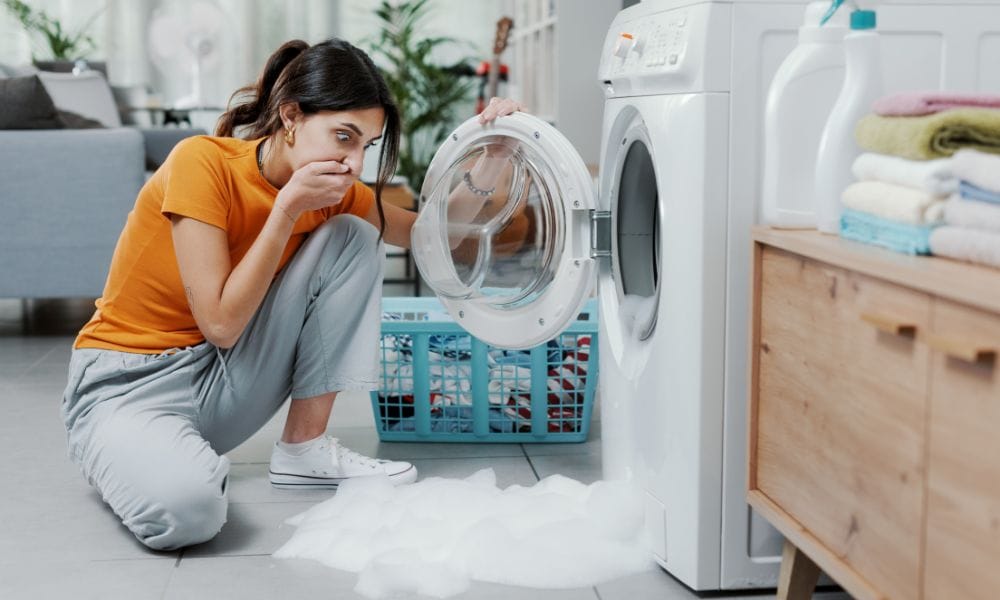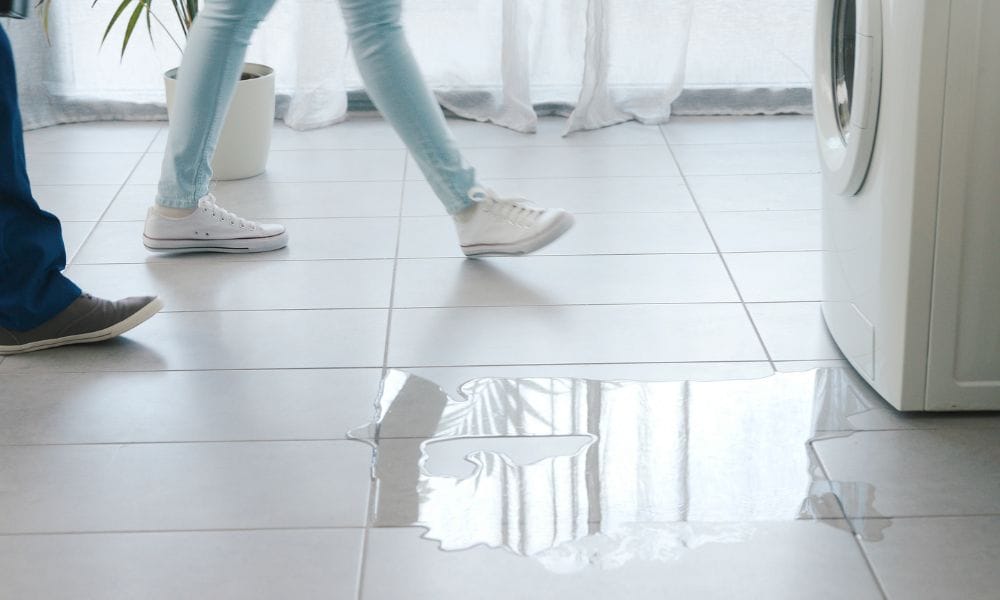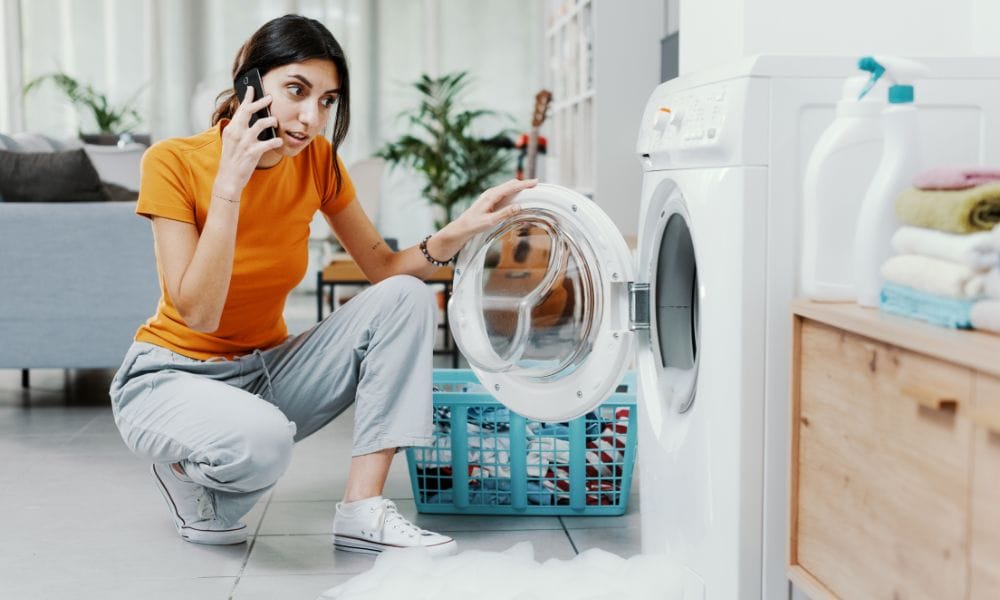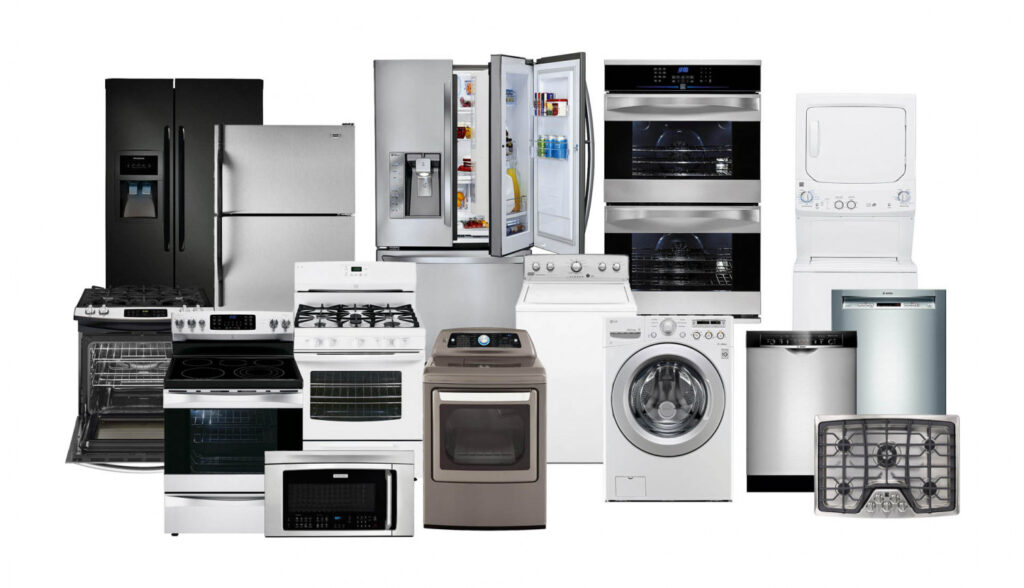
Washing Machine Leaking: Complete Fix & Prevention Guide
A Washing Machine Leaking is every home owner’s worst nightmare. Not only does it make a mess, but if not dealt with, it can ruin floors, walls, and even your appliance’s internal components. Whether it’s a drippy drip or a full scale flood, finding and repairing the leak early is the way to save yourself from costly fixes.If you’ve noticed your washing machine leaking unexpectedly, it’s time to investigate the root cause before it leads to serious damage.
Here, you’ll learn the most common reasons why your washing machine is leaking, how to identify where it’s coming from, and what effective steps you can do to repair it.This 2025 edition features the newest methods, equipment, and professional insights in-step with current washing machines.
Common Causes of Washing Machine Leaks
1. Damaged or Loose Hoses
One of the primary causes behind washing machine leaks is often a damaged or worn out hose. Make sure to examine all hoses carefully.
Drain hose: Could be cracked, blocked, or loose.
Water inlet hoses: Can loosen or become brittle with age.
Check for water at the back of the machine and inspect hose connections closely.
2. Rotten Door Seal (Front Loaders)
Front load washing machines use a rubber gasket around the door to create a tight seal and prevent water from escaping. This seal can develop cracks, warp, or become clogged over time, resulting in leaks on the door.
3. Clogged or Faulty Drain Pump
The drain pump that drains water during the spin cycle gets clogged with trash or sometimes even mechanically fails, resulting in water accumulating below the machine.
4. Overloading the Washer
Overloading your washer past its rated capacity can upset its balance, spilling water or pushing it out through seals and hoses.
5. Misuse of Detergent
HE washers require HE detergent. Regular soap produces too much sudsing that fills the drum and leaks out from numerous openings.
6. Internal Tub Damage
The internal tub contains the water during washing. If the gasket is damaged or misaligned, it can allow water to escape mid cycle
Step by Step Guide to Diagnosing a Leak
Unplug the machine for safety.
Look closely at the hoses for any signs of wear, cracks, or loosened connections.
Examine the door seal carefully for tears, warping, or any other damage that might cause leaks.
Look underneath for signs of water puddles near the pump area.
Open the back panel (if comfortable doing so) to inspect internal tubing.
Run a small test load to try and pinpoint when and where the leak begins.

DIY Fixes for Common Washing Machine Leaks
Fix 1: Replacing a Broken Hose
Turn off water supply.
Pull out the old hose with pliers.
Connect a new hose and tighten securely.
Test with water turned on.
Fix 2: Cleaning or Replacing Door Seal
Clean the gasket.
Look for hidden items lodged in the seal.
If damaged, take out the old seal and put on a replacement.
Fix 3: Clean the Drain Pump
Open the pump filter door.
Clear debris.
Re lock filter and perform rinse cycle.
When to Call a Professional
All leaks may not be simple to repair. Call a professional if:
Water is leaking from within the washer drum.
The control panel or electronics are damp.
You’ve attempted to fix it yourself, but it still doesn’t work.
Experts possess diagnostic equipment and replacement components that are frequently difficult for homeowners to find.
If you’re in Victoria BC, you can trust QuickFix Appliance Experts to provide same day diagnosis and trustworthy washing machine repairs.

How to Avoid Future Leaks
Don’t overload the washer.
Use proper detergent and suggested amount.
Wipe the door seal once a week.
Set up annual servicing.
Monitor hose condition every few months.
Disguised Signs You May Be Overlooking
Hidden Signs You Might Be Ignoring
A Washing Machine Leaking issue isn’t always as clear cut as a puddle on the floor. You may see wet clothes even after the last spin, a musty odor close to the appliance, or soggy, buckled flooring beneath your washer. Such subtle clues usually indicate slow leaks that have built up over time. Disregarding them can result in extensive water damage and expensive repairs. That’s why it’s crucial to probe even the tiniest indications before they snowball into larger issues.
Effect of a Leaking Washing Machine on Your House
A Washing Machine Leaking may appear to be a trivial problem, but it can quietly cause havoc in your home over time. Water leakage can rot floors, compromise structural stability, and even encourage the growth of mold behind walls or beneath tiles. What may begin as a few droplets may amount to hundreds of dollars in repairs if neglected in the long run. It is therefore imperative for homeowners to know the cause and respond quickly to make repairs.
Final Thoughts Washing Machine Leaking
A Washing Machine Leaking may look like just a puddle, but chances are it’s a warning sign for more serious problems that can become bigger, more expensive issues if left unchecked. The good news: most leaks are avoidable with some TLC and basic know how. For a deeper dive into the causes and fixes for a washing machine leaking, check out this comprehensive guide by The Spruce here.
So, whether it’s an easy DIY hose replacement or a professional repair, dealing with your Washing Machine Leaking issue early is the best call.
FAQ: Washing Machine Leaking
Q1. Why is my Washing Machine Leaking from underneath?
It usually indicates a bad drain pump, cracked tub, or loose internal hose.
Q2. Can I use my washer if it’s leaking?
It’s not recommended. Running it further may aggravate the damage or even cause electrical risks.
Q3. How often should I replace my washer hoses?
5 years is the time frame we recommend even sooner if you see cracks or bulging.
Q4. What detergent should I use?
Always employ HE (high efficiency) detergent with front loading or HE designated top load machines.
Q5. Is a leaking washer under warranty?
Most warranties cover parts such as pumps and seals for the duration of the warranty. Review your individual coverage.



